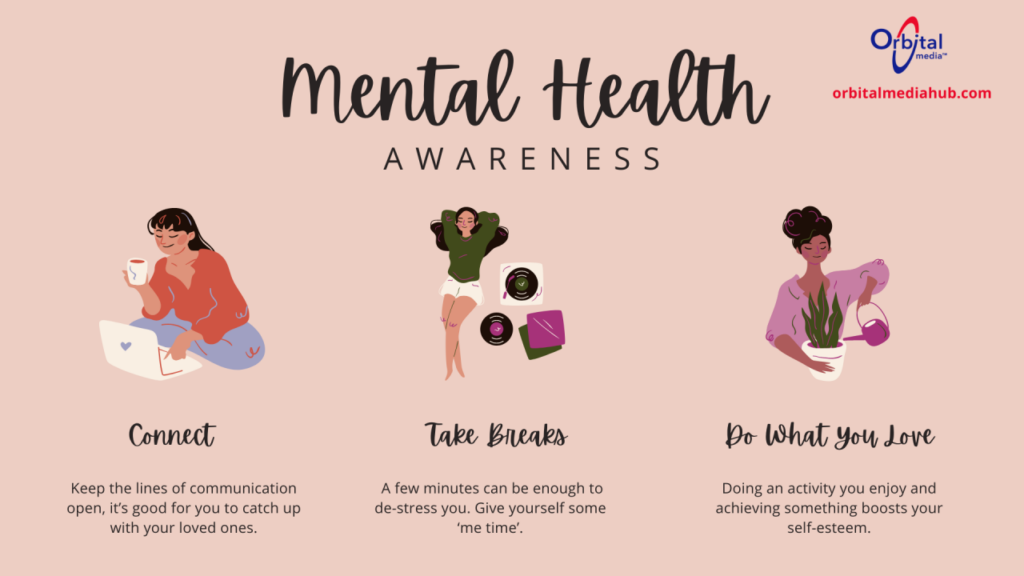Overview
Welcome to BestAdvise4U.com Health, your trusted source for comprehensive health advice and guidance. We understand the importance of prioritizing your well-being in today’s fast-paced world, and our mission is to empower you with the knowledge and tools necessary to achieve optimal health. Whether you’re looking to make small lifestyle changes or embark on a transformative wellness journey, we’re here to support you every step of the way.
Mission and Vision
Our mission at BestAdvise4U.com Health is simple yet profound: to inspire and enable individuals to lead healthier, happier lives. We believe that everyone deserves access to reliable health information and resources, regardless of their background or circumstances.

Our vision is to create a community where people can come together to learn, grow, and support one another on their paths to wellness.
How to Use This Website
Navigating BestAdvise4U.com Health is easy and intuitive. Our website is organized into distinct sections, each focusing on different aspects of health and wellness. Whether you’re interested in nutrition, fitness, mental well-being, or disease prevention, you’ll find a wealth of information and resources at your fingertips. Simply click on the section that interests you to explore articles, tips, and tools tailored to your needs.
Understanding Health
Before we delve into specific health topics, it’s essential to have a clear understanding of what health truly means. Health is not merely the absence of disease but a state of complete physical, mental, and social well-being. It encompasses not only the body but also the mind and spirit, and it is influenced by a myriad of factors, both internal and external.
What is Health?
Health is a holistic concept that encompasses physical, mental, and social well-being. It is not simply the absence of illness or disease but a state of optimal functioning and vitality. True health enables individuals to thrive and fully engage in life’s activities, fulfilling their potential and pursuing their passions with vigor and enthusiasm.
Importance of Health
The importance of health cannot be overstated. It forms the foundation upon which all other aspects of life are built, influencing everything from personal relationships to professional success. When we prioritize our health, we are better able to cope with stress, maintain positive mental attitudes, and enjoy higher qualities of life.

Investing in our health today pays dividends in the form of increased energy, resilience, and longevity tomorrow.
Factors Affecting Health
Health is influenced by a complex interplay of factors, including genetics, environment, lifestyle, and access to healthcare. While some factors may be beyond our control, many are within our power to influence. By making informed choices and adopting healthy habits, we can enhance our well-being and reduce our risk of developing chronic diseases such as heart disease, diabetes, and cancer.
Nutrition and Diet
Basics of Nutrition
Understanding the basics of nutrition is fundamental to making informed dietary choices. At its core, nutrition is the science of how our bodies obtain and utilize nutrients from the foods we consume. Nutrients, such as carbohydrates, proteins, fats, vitamins, and minerals, play crucial roles in maintaining our overall health and well-being. Carbohydrates provide us with energy, proteins support muscle growth and repair, fats are essential for hormone production and cell function, while vitamins and minerals act as catalysts for various biochemical reactions in the body.
Healthy Eating Habits
Cultivating healthy eating habits is key to achieving and maintaining optimal health. Rather than viewing food as mere fuel, it’s important to approach eating as an opportunity to nourish our bodies and fuel our activities. This means prioritizing whole, nutrient-dense foods such as fruits, vegetables, lean proteins, and whole grains, while minimizing consumption of processed and sugary foods.

Portion control, mindful eating, and staying hydrated are also integral components of healthy eating habits, promoting balanced nutrition and satiety.
Specialized Diets (e.g., Keto, Vegan, Gluten-Free)
Specialized diets, such as the ketogenic diet, vegan diet, and gluten-free diet, have gained popularity in recent years due to their purported health benefits and alignment with specific dietary preferences or medical conditions. The ketogenic diet, for instance, is high in fats and low in carbohydrates, with the goal of inducing ketosis, a metabolic state where the body burns fat for fuel. Vegan diets exclude all animal products and focus on plant-based foods, while gluten-free diets eliminate gluten-containing grains like wheat, barley, and rye, often to manage gluten sensitivity or celiac disease. It’s important to approach specialized diets with caution, ensuring they are well-balanced and meet individual nutritional needs.
Fitness and Exercise
Importance of Physical Activity
Physical activity is a cornerstone of health and well-being, offering a myriad of benefits for both body and mind. Regular exercise not only strengthens muscles, bones, and cardiovascular health but also improves mood, reduces stress, and enhances cognitive function. Whether it’s brisk walking, swimming, cycling, or dancing, finding enjoyable ways to incorporate physical activity into your daily routine is crucial for maintaining overall fitness and vitality.
also read: Unveiling BobGameTech.com Paytm Credit Card – A Game-Changer in Online Transactions
Types of Exercises
There are various types of exercises, each targeting different aspects of fitness. Aerobic exercises, such as running, cycling, and dancing, increase cardiovascular endurance and promote fat burning. Strength training exercises, such as weightlifting and bodyweight exercises, build muscle mass and improve strength and power. Flexibility exercises, like yoga and stretching, enhance range of motion and joint mobility. A well-rounded fitness regimen typically includes a combination of these exercises to address all facets of fitness.
Creating a Workout Routine
Designing a personalized workout routine involves considering individual goals, preferences, and fitness levels. Start by setting specific, achievable goals, whether it’s losing weight, gaining muscle, or improving overall fitness. Then, choose exercises and activities that align with your goals and interests. Aim for a balanced mix of cardiovascular, strength training, and flexibility exercises, scheduling regular workouts throughout the week. Gradually increase intensity and duration as your fitness improves, and don’t forget to incorporate rest days to allow for recovery and prevent overtraining. By tailoring your workout routine to suit your needs and preferences, you’ll be more likely to stick with it and reap the benefits of regular exercise.
Mental Well-being
Managing Stress
Stress is an inevitable part of life, but learning to manage it effectively is crucial for maintaining mental well-being. Techniques such as deep breathing exercises, mindfulness meditation, and progressive muscle relaxation can help alleviate stress and promote relaxation. Additionally, engaging in activities that bring joy and fulfillment, such as hobbies, spending time in nature, and socializing with loved ones, can serve as effective stress relievers. It’s also important to prioritize self-care and set boundaries to prevent burnout and overwhelm.
Mental Health Awareness
Raising awareness about mental health is essential for reducing stigma and promoting early intervention and treatment. Mental health conditions, such as depression, anxiety, and bipolar disorder, are common and can affect anyone regardless of age, gender, or background.

By fostering open and honest conversations about mental health and providing education and resources, we can empower individuals to seek help when needed and promote a culture of acceptance and support.
Strategies for Emotional Wellness
Emotional wellness encompasses the ability to understand and manage our emotions effectively, leading to greater resilience and overall well-being. Practices such as journaling, practicing gratitude, and seeking therapy or counseling can help cultivate emotional awareness and regulation. Building strong social connections and fostering healthy relationships is also vital for emotional wellness, providing a support network during times of challenge and celebration.
Disease Prevention
Common Diseases and Conditions
Understanding the prevalence and risk factors associated with common diseases and conditions is key to prevention and early detection. Chronic diseases such as heart disease, diabetes, and cancer are leading causes of morbidity and mortality worldwide, but many are preventable through lifestyle modifications such as healthy eating, regular exercise, and avoiding tobacco and excessive alcohol consumption. Additionally, staying informed about infectious diseases such as influenza and COVID-19 can help reduce transmission and protect public health.
Preventive Measures
Prevention is often more effective and less costly than treatment, making preventive measures a cornerstone of public health efforts. Regular health screenings, vaccinations, and immunizations are essential for detecting diseases early and preventing their spread. Adopting healthy lifestyle habits, such as maintaining a balanced diet, staying physically active, and managing stress, can also reduce the risk of developing chronic diseases and promote overall well-being.
also read: Unlocking the Secrets of @7_jgray – A Recent Tweets Analysis
Vaccinations and Immunizations
Vaccinations and immunizations play a critical role in preventing infectious diseases and protecting public health. Vaccines work by stimulating the immune system to produce antibodies against specific pathogens, providing immunity without causing the disease itself. Routine vaccination schedules for children and adults help prevent the spread of vaccine-preventable diseases such as measles, polio, and influenza. By staying up-to-date on vaccinations and following recommended immunization guidelines, individuals can help safeguard their health and the health of their communities.
Lifestyle Tips
Sleep Hygiene
Quality sleep is essential for overall health and well-being. Practicing good sleep hygiene involves establishing a consistent sleep schedule, creating a relaxing bedtime routine, and optimizing your sleep environment for restfulness. Avoiding stimulants like caffeine and electronics before bedtime, maintaining a comfortable room temperature, and investing in a supportive mattress and pillows can all contribute to better sleep quality.
Healthy Habits
Incorporating healthy habits into your daily routine is key to maintaining optimal health and vitality. This includes eating a balanced diet rich in fruits, vegetables, lean proteins, and whole grains, staying hydrated, and limiting processed foods and sugary beverages. Regular physical activity, such as walking, jogging, or yoga, promotes cardiovascular health and boosts mood and energy levels. Prioritizing mental health through mindfulness practices, stress management techniques, and seeking social support is also crucial for overall well-being.
Productivity and Time Management
Effective productivity and time management strategies can help you make the most of your time and achieve your goals more efficiently. This includes setting realistic goals, breaking tasks down into manageable steps, and prioritizing your workload based on importance and urgency. Utilizing tools such as to-do lists, calendars, and time-blocking techniques can help you stay organized and focused throughout the day. Additionally, practicing self-care and incorporating breaks and downtime into your schedule is essential for preventing burnout and maintaining work-life balance.
Conclusion
At BestAdvise4U.com Health, we believe that small changes can lead to significant improvements in your health and well-being. By adopting healthy habits, managing stress effectively, and prioritizing self-care, you can enhance your quality of life and achieve your wellness goals. Remember, health is a journey, not a destination, and we’re here to support you every step of the way.
FAQ
How can I improve my sleep quality?
To improve sleep quality, try to maintain a consistent sleep schedule, create a relaxing bedtime routine, and optimize your sleep environment by keeping your bedroom cool, dark, and quiet. Avoiding stimulants like caffeine and electronics before bedtime can also help.
What are some healthy eating habits I can incorporate into my lifestyle?
Some healthy eating habits include eating a balanced diet rich in fruits, vegetables, lean proteins, and whole grains, staying hydrated, and limiting processed foods and sugary beverages. Portion control and mindful eating are also important for maintaining a healthy weight.
How can I manage stress effectively?
Managing stress effectively involves identifying stress triggers, practicing relaxation techniques such as deep breathing and mindfulness meditation, and prioritizing self-care activities that bring you joy and relaxation. Seeking support from friends, family, or a mental health professional can also be beneficial.





